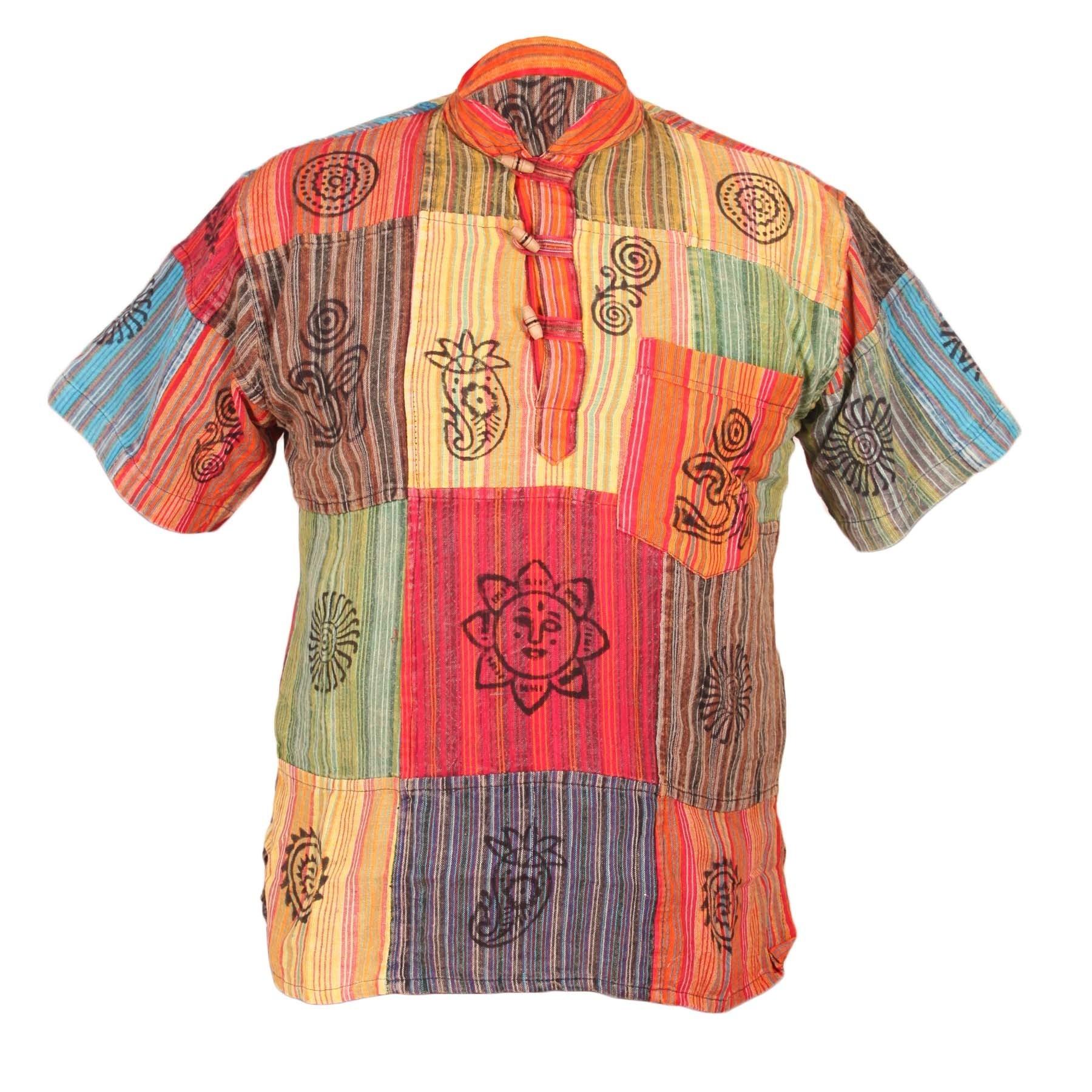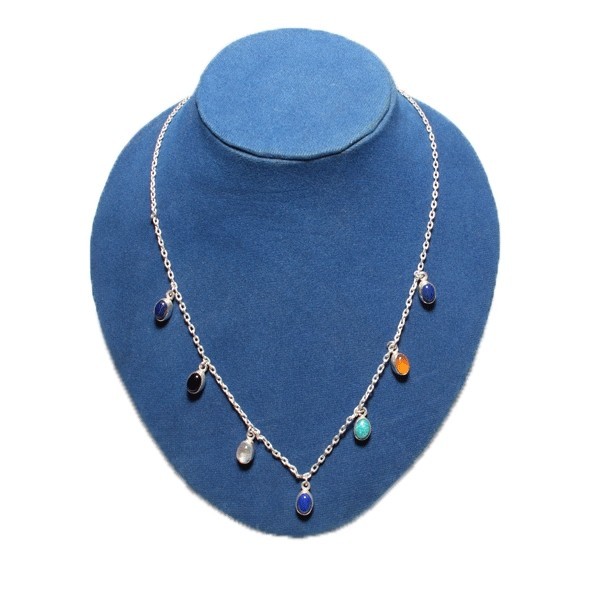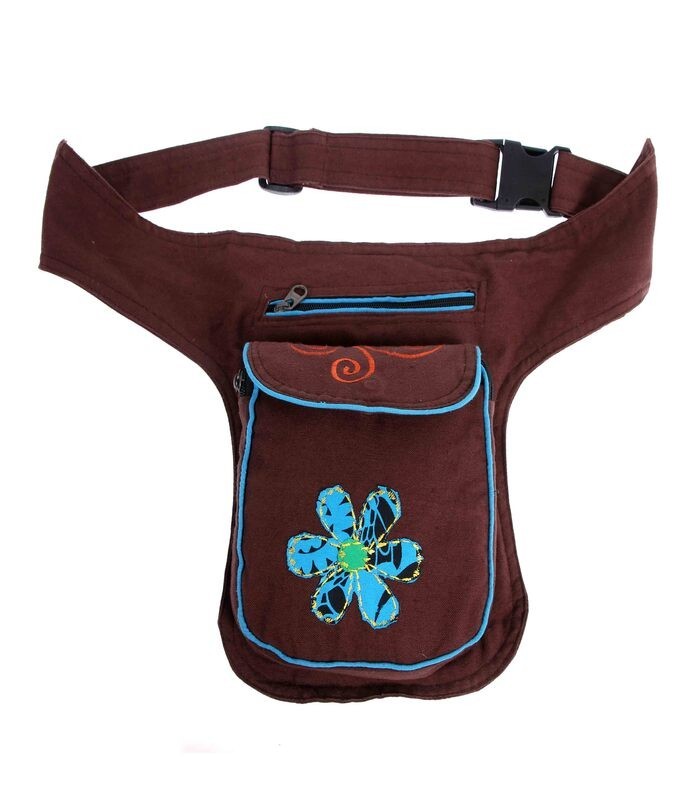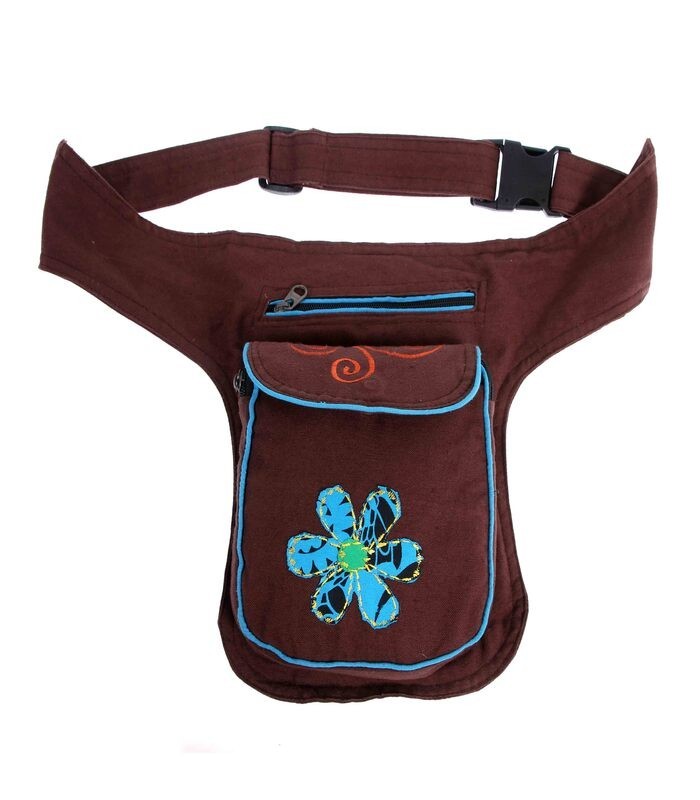For retailers and boutique owners seeking to infuse their collections with free-spirited style, vibrant colors, and...
Latest posts
-
 Unleash Your Inner Wanderer: Your Ultimate Guide to Buy Bulk Bohemian Clothing from NepalRead more
Unleash Your Inner Wanderer: Your Ultimate Guide to Buy Bulk Bohemian Clothing from NepalRead more -
 Adorned with Heritage: Unlocking the Beauty of Handmade Jewelry Wholesale in Nepal18/04/2025Read more
Adorned with Heritage: Unlocking the Beauty of Handmade Jewelry Wholesale in Nepal18/04/2025Read moreNepal, a land steeped in artistry and tradition, is renowned for its exquisite craftsmanship, and its handmade...
-
 Unlocking Fashion's Hidden Gems: Your Guide to Online Wholesale Clothing in Kathmandu17/04/2025Read more
Unlocking Fashion's Hidden Gems: Your Guide to Online Wholesale Clothing in Kathmandu17/04/2025Read moreFor fashion retailers and boutique owners worldwide, the quest for unique, high-quality, and ethically sourced...
-
 Timeless Style, Sustainable Choice: Exploring the World of Classic Hemp Hats16/04/2025Read more
Timeless Style, Sustainable Choice: Exploring the World of Classic Hemp Hats16/04/2025Read moreIn a world increasingly embracing eco-conscious fashion, the demand for sustainable and natural alternatives is...
-
 Hands-Free Adventure: Discovering the Practicality of Affordable Waist Bags11/04/2025Read more
Hands-Free Adventure: Discovering the Practicality of Affordable Waist Bags11/04/2025Read moreWhen it comes to outdoor adventures, travel, or even everyday convenience, having your essentials close at hand is...
-
 Embrace Earth-Friendly Style: The Rise of Natural Hemp Bags10/04/2025Read more
Embrace Earth-Friendly Style: The Rise of Natural Hemp Bags10/04/2025Read moreIn a world increasingly conscious of environmental impact, the fashion industry is witnessing a significant shift...
-
 Navigating the Top Online Clothing Stores in Nepal09/04/2025Read more
Navigating the Top Online Clothing Stores in Nepal09/04/2025Read moreNepal, a land of vibrant culture and breathtaking landscapes, is also experiencing a digital revolution. The fashion...
-
 A Symphony of Style: Shopping for Exquisite Scarves from Nepal18/03/2025Read more
A Symphony of Style: Shopping for Exquisite Scarves from Nepal18/03/2025Read moreScotland, with its rich heritage and appreciation for fine textiles, offers a perfect backdrop for exploring the...
-
 Exploring the World of Wholesale Hemp Products12/03/2025Read more
Exploring the World of Wholesale Hemp Products12/03/2025Read moreHemp, a versatile and sustainable plant, has gained significant popularity in recent years. From textiles and food to...
-
 Stylish Fanny Packs from Nepal: A Guide to Practical and Trendy Accessories09/03/2025Read more
Stylish Fanny Packs from Nepal: A Guide to Practical and Trendy Accessories09/03/2025Read moreItaly, with its blend of classic elegance and modern trends, offers a unique backdrop for exploring the world of...
Blog categories
Search in blog
Crafting Wellness in Nepal: A Guide to Making Natural Products
Germany, with its growing emphasis on holistic health and sustainable living, offers a fertile ground for exploring the world of natural wellness products. Today, we venture to the heart of the Himalayas, to Nepal, a country renowned for its rich biodiversity and ancient healing traditions. Let's delve into the art of crafting natural wellness products in Nepal and discover the potential for a sustainable and fulfilling venture.
Nepal: A Natural Pharmacy
Nestled amidst the majestic Himalayas, Nepal is a treasure trove of medicinal plants and herbs. The country's unique geographical and climatic conditions have fostered a rich biodiversity, providing a natural laboratory for centuries of traditional healing practices. This confluence of factors has resulted in a deep-rooted knowledge of nature's pharmacy, which forms the foundation of many Nepalese wellness products.
Understanding the Basics of Product Creation
Before embarking on your journey to create natural wellness products, it's essential to understand the fundamental principles:
- Sourcing Raw Materials: Nepal offers a wealth of natural ingredients, including herbs, plants, essential oils, and minerals. Ensure you source your materials ethically and sustainably.
- Traditional Techniques: Many Nepalese wellness products are based on ancient Ayurvedic or traditional healing practices. Research and learn these techniques to incorporate them into your creations.
- Quality Control: Maintain strict quality control measures to ensure the purity and potency of your products.
- Safety and Regulations: Familiarize yourself with local regulations and safety standards related to manufacturing and selling wellness products.
Popular Natural Wellness Products from Nepal
Nepal offers a diverse range of natural wellness products, catering to various needs. Here are some popular options:
- Essential Oils: Derived from aromatic plants, essential oils are used for aromatherapy, skincare, and other applications. Popular Nepalese essential oils include Himalayan cedar, lemongrass, and juniper.
- Herbal Teas: Enjoy the benefits of herbal teas made from traditional Nepalese herbs like ginger, turmeric, and chamomile.
- Ayurvedic Products: Create Ayurvedic formulations using herbs, spices, and natural oils. Popular Ayurvedic products include herbal supplements, hair oils, and skin creams.
- Himalayan Salt Products: Harness the healing properties of Himalayan salt through bath salts, scrubs, and cooking utensils.
- Incense and Aromatic Resins: Create a calming atmosphere with traditional Nepalese incense and resins.
DIY Wellness Products: A Beginner's Guide
If you're keen on creating your own natural wellness products, here's a basic guide:
- Start Small: Begin with simple products like herbal teas or infused oils.
- Experiment with Ingredients: Explore the vast array of natural ingredients available in Nepal.
- Learn Basic Techniques: Master techniques like infusing, macerating, and distilling.
- Consult with Experts: Seek advice from herbalists, Ayurvedic practitioners, or experienced artisans for guidance.
Building Your Brand and Business
Once you've mastered the art of creating natural wellness products, it's time to build your brand and reach your target market:
- Define Your Brand: Identify your unique selling proposition and create a brand identity that resonates with your target audience.
- Packaging and Labeling: Invest in attractive and informative packaging that reflects your brand's values.
- Marketing and Sales: Utilize digital marketing, social media, and local markets to reach your customers.
- Networking and Partnerships: Collaborate with other businesses in the wellness industry to expand your reach.
Ethical Considerations and Sustainability
As a responsible business owner, it's essential to consider the ethical and sustainable implications of your venture:
- Fair Trade Practices: Ensure your sourcing and production practices align with fair trade principles.
- Environmental Impact: Minimize your environmental footprint by using sustainable materials and reducing waste.
- Community Engagement: Consider ways to give back to the community and support local initiatives.
By following these guidelines and embracing the rich heritage of Nepalese natural wellness, you can create a sustainable and fulfilling business. Let your passion for natural products inspire you to make a positive impact on the world.
Related posts
-
 Boho Dreams in the Himalayas: Unveiling the Best Boho Clothing in Nepal
Posted in: Default category21/04/2024Hey there, fellow free spirits and lovers of all things bohemian! Calling all the flower children, vintage...Read more
Boho Dreams in the Himalayas: Unveiling the Best Boho Clothing in Nepal
Posted in: Default category21/04/2024Hey there, fellow free spirits and lovers of all things bohemian! Calling all the flower children, vintage...Read more -
 THE LARGEST ONLINE NEPALI CLOTHING WHOLESALER
Posted in: Default category21/04/2024The world has gone digital and so has Kathmandu Clothing, the largest Wholesale Nepali clothing suppliers from Nepal...Read more
THE LARGEST ONLINE NEPALI CLOTHING WHOLESALER
Posted in: Default category21/04/2024The world has gone digital and so has Kathmandu Clothing, the largest Wholesale Nepali clothing suppliers from Nepal...Read more -
 THE BEST HIPPIE CLOTHING BRANDS OF 2020 OFFERING SUPER SALE AND FREE SHIPPING WORLDWIDE
Posted in: Default category21/04/2024Finally, we are in this year and its shopping time for the New Year. Everybody is hustling and for shopping and I...Read more
THE BEST HIPPIE CLOTHING BRANDS OF 2020 OFFERING SUPER SALE AND FREE SHIPPING WORLDWIDE
Posted in: Default category21/04/2024Finally, we are in this year and its shopping time for the New Year. Everybody is hustling and for shopping and I...Read more -
 BEST BOHEMIAN CLOTHING STORES OF 2020 OFFERING SUPER SALE
Posted in: Default category21/04/2024Changes in the season call for a wardrobe update. Keep up your style game with fresh pieces on your daily rotation....Read more
BEST BOHEMIAN CLOTHING STORES OF 2020 OFFERING SUPER SALE
Posted in: Default category21/04/2024Changes in the season call for a wardrobe update. Keep up your style game with fresh pieces on your daily rotation....Read more -
 TOP TEN TIPS WHILE BUYING CLOTHES FROM NEPAL ONLINE
Posted in: Default category21/04/2024Online shopping from Nepal, especially of clothing, is beneficial to all those shoppers and the stylish people...Read more
TOP TEN TIPS WHILE BUYING CLOTHES FROM NEPAL ONLINE
Posted in: Default category21/04/2024Online shopping from Nepal, especially of clothing, is beneficial to all those shoppers and the stylish people...Read more

Leave a comment